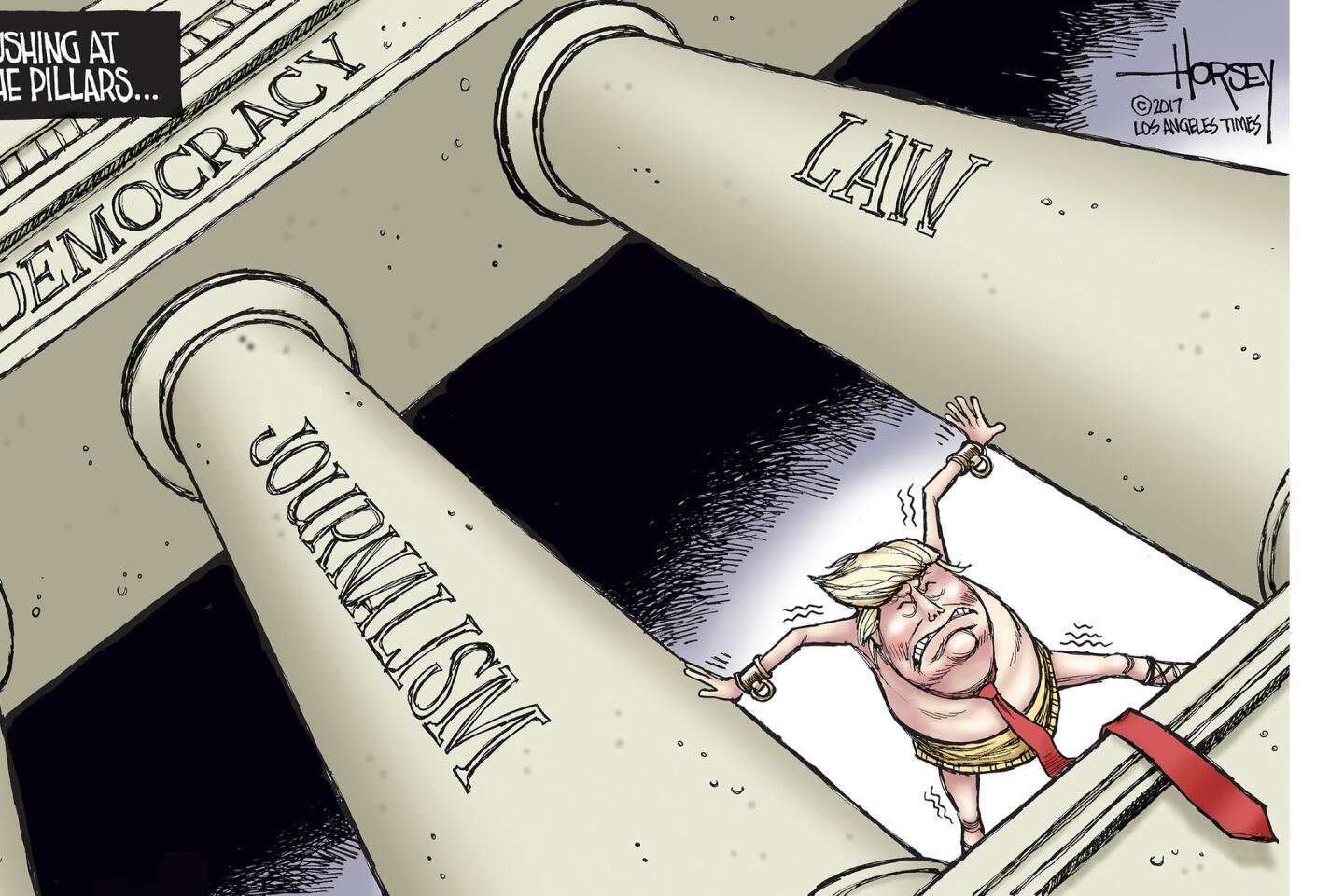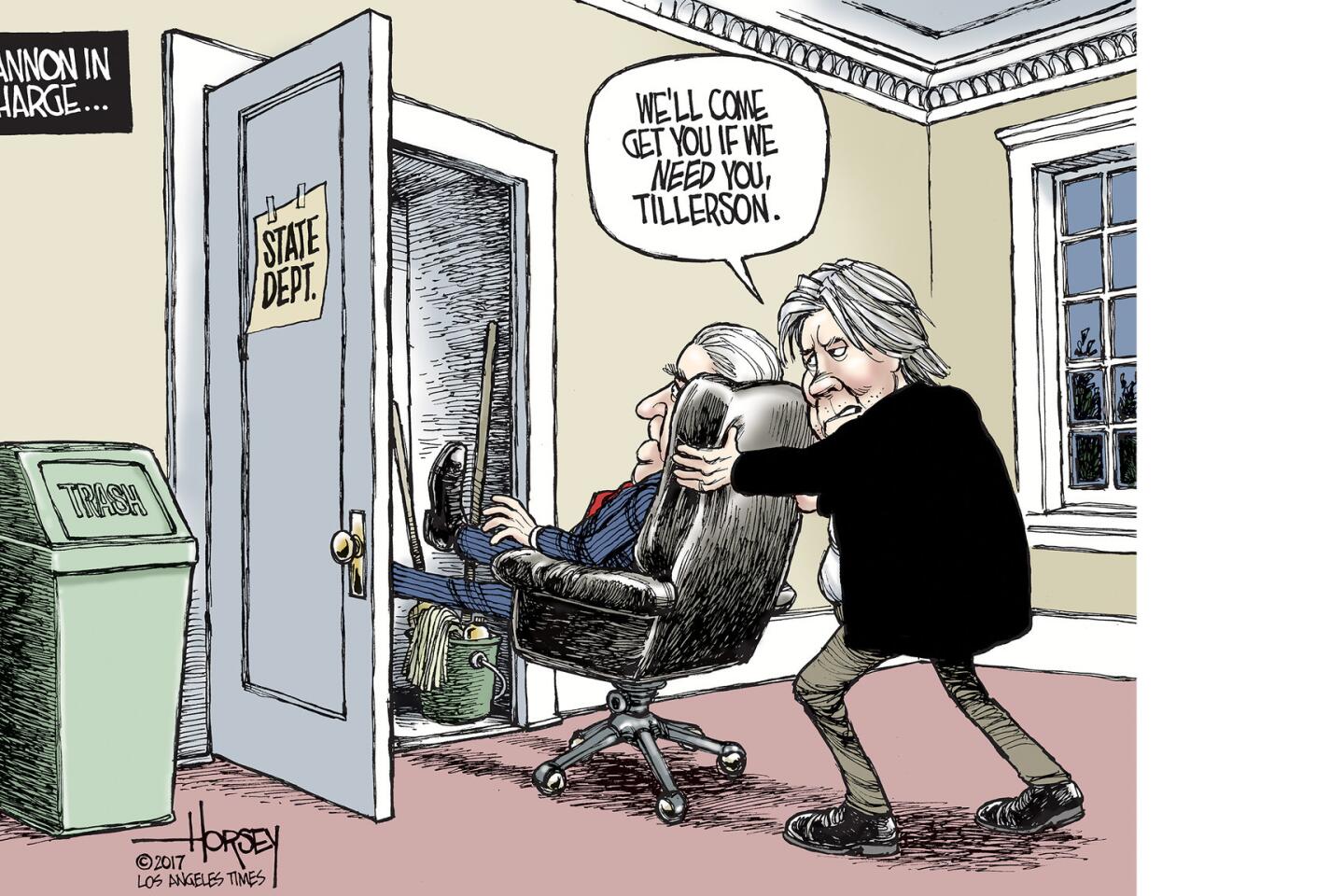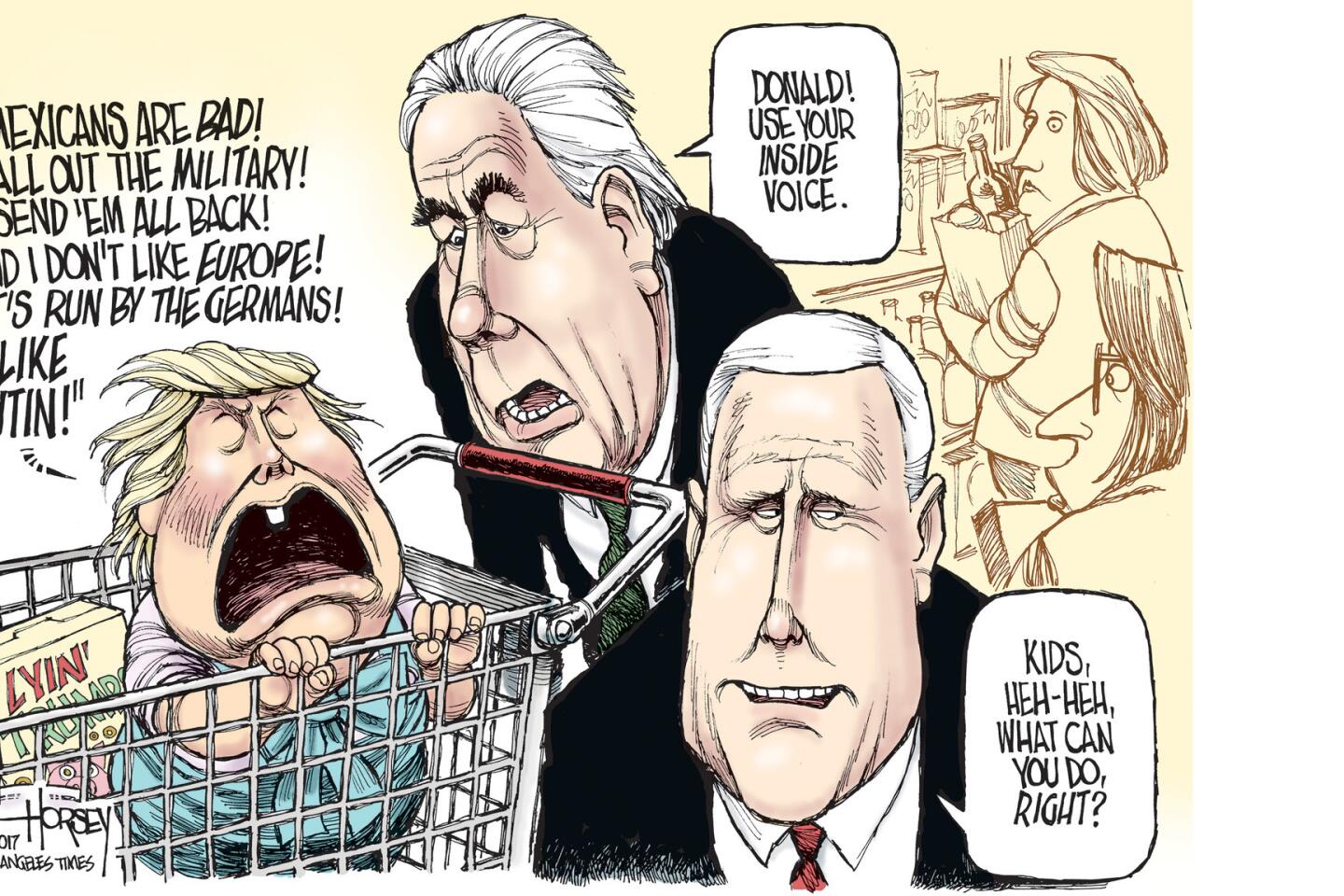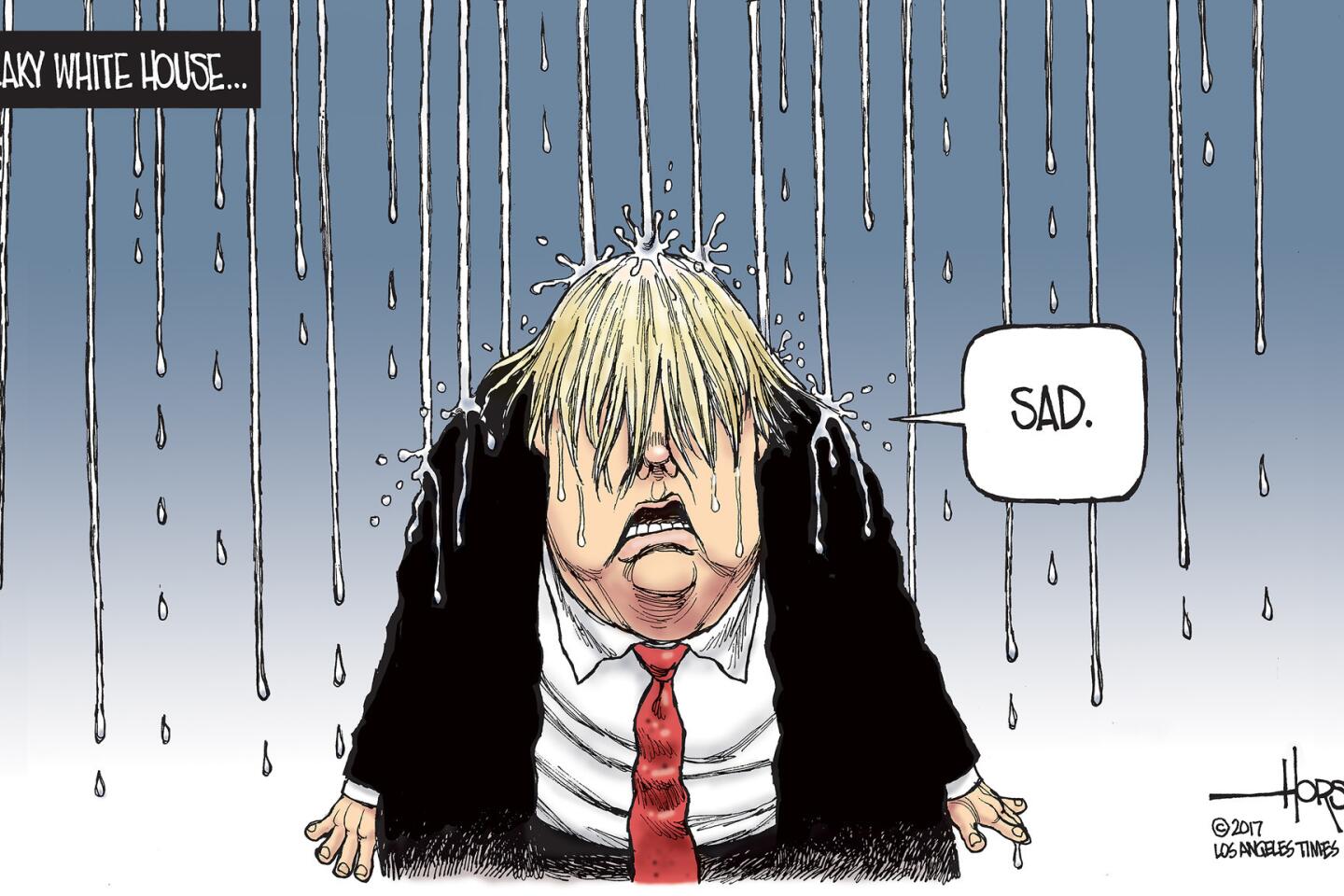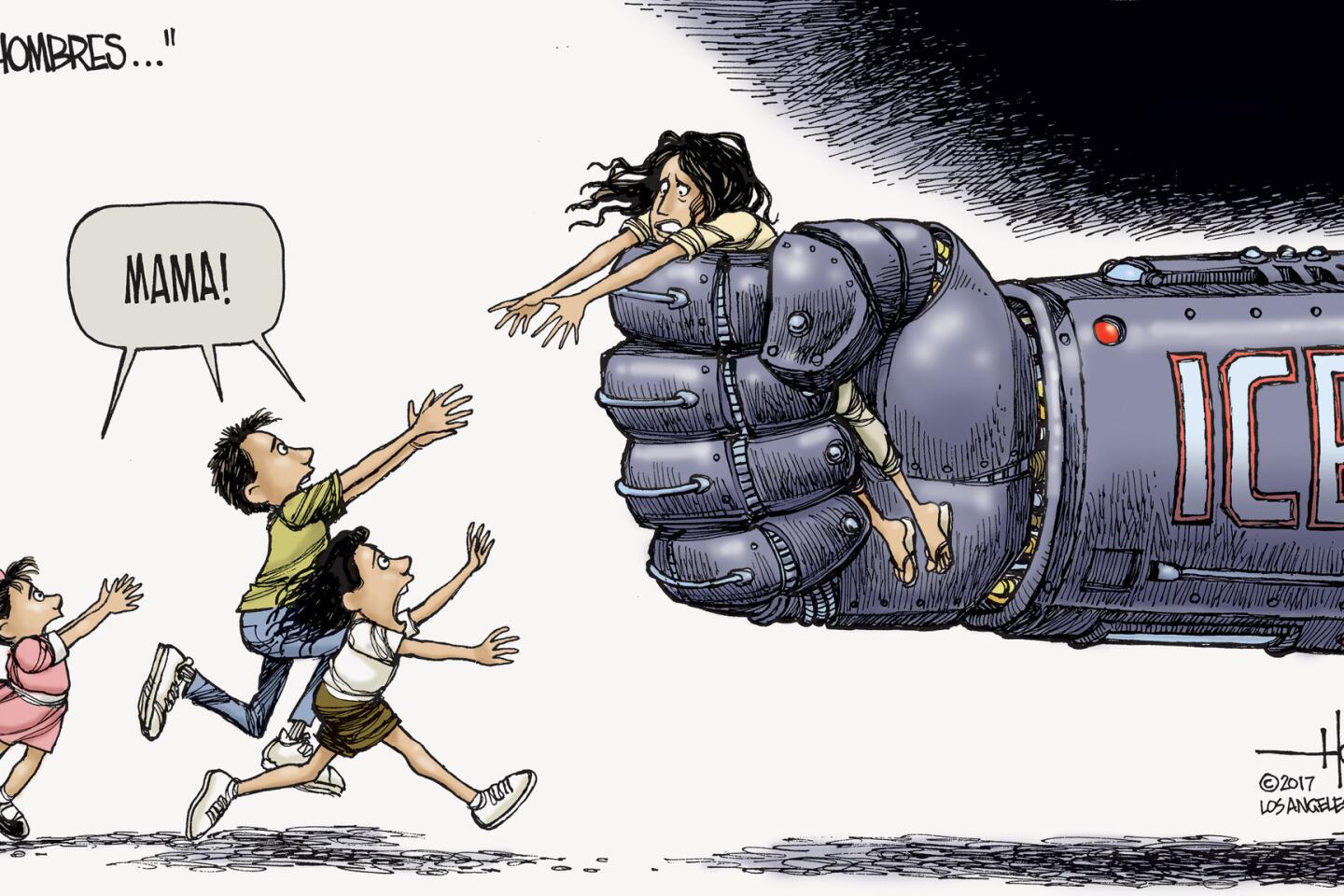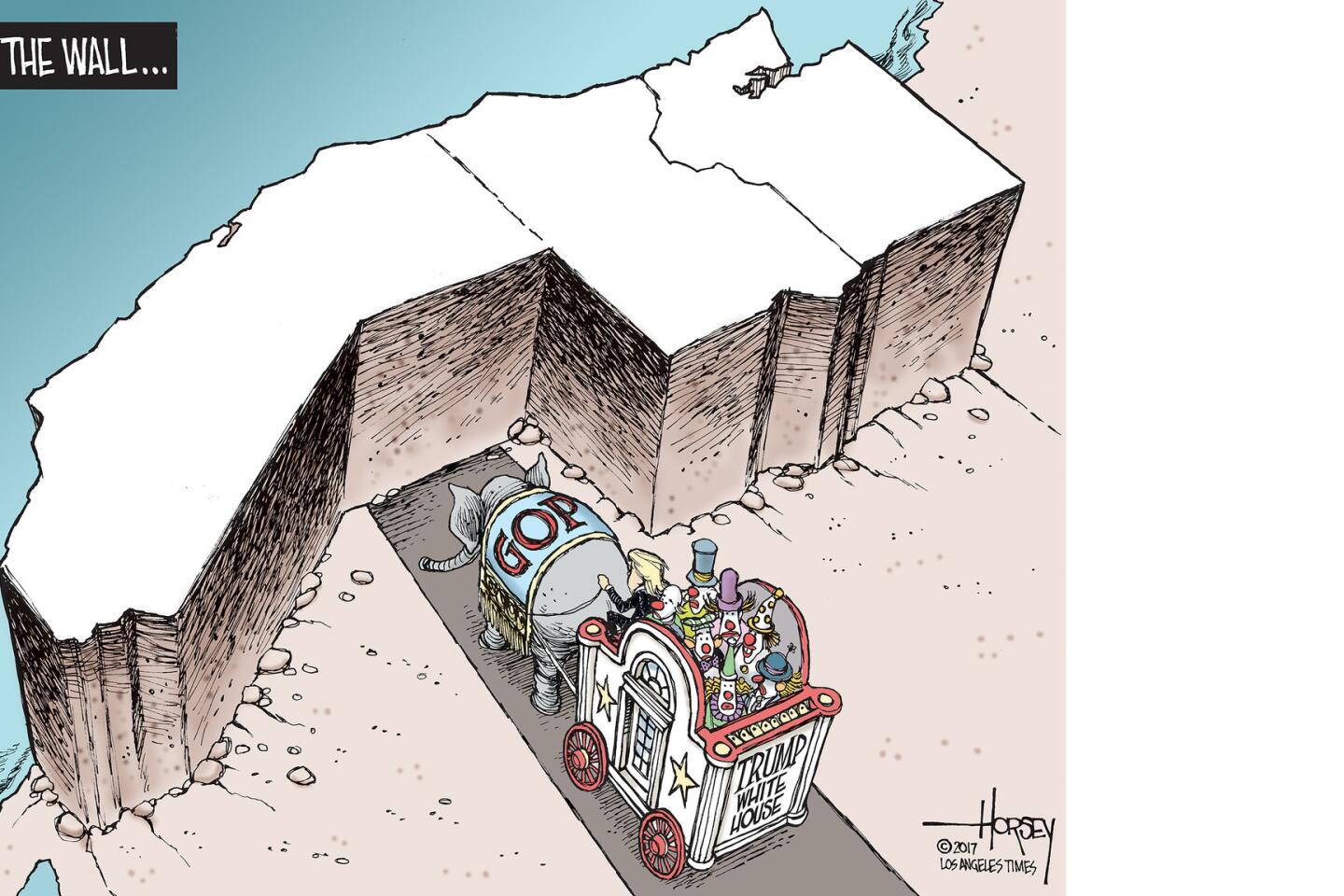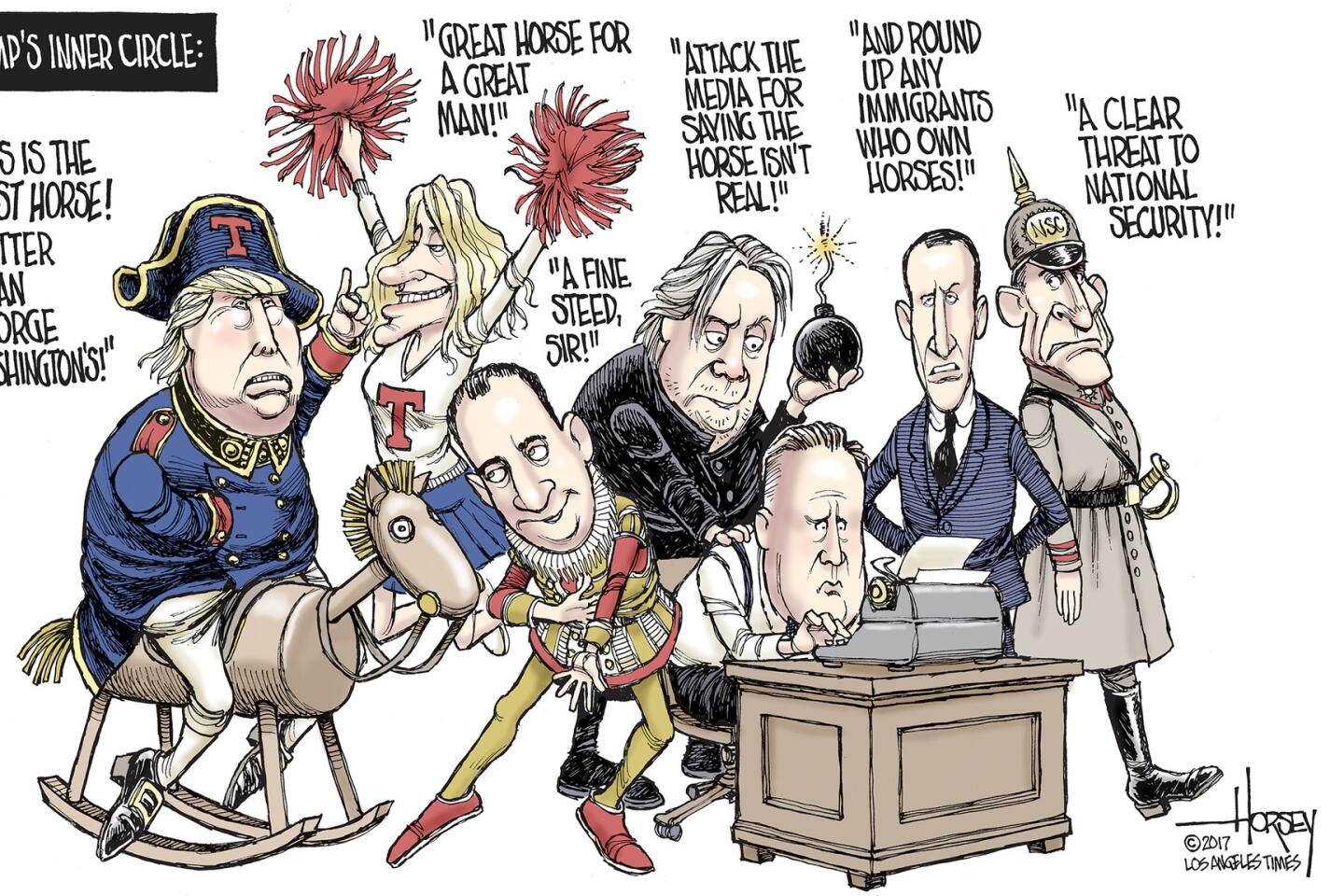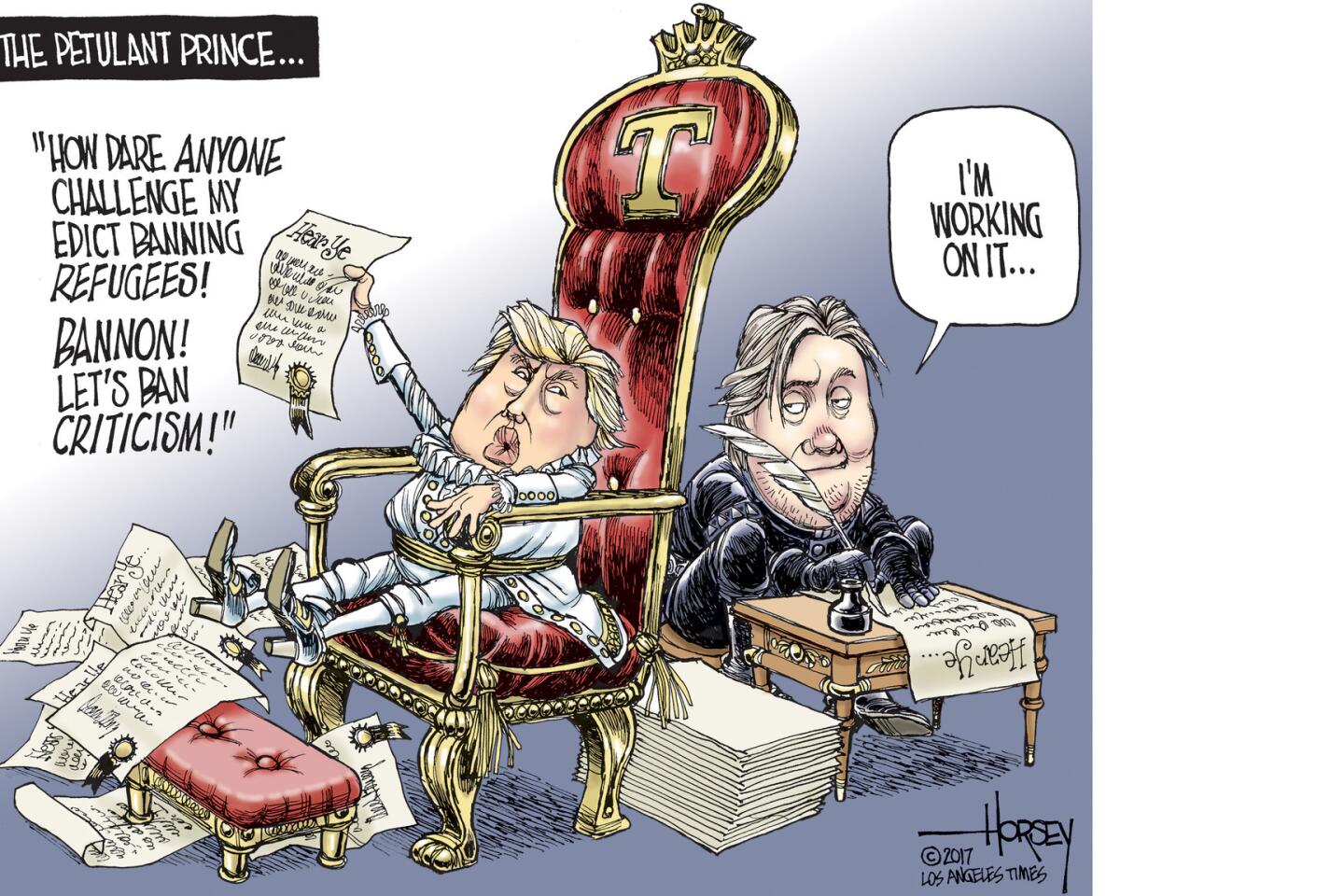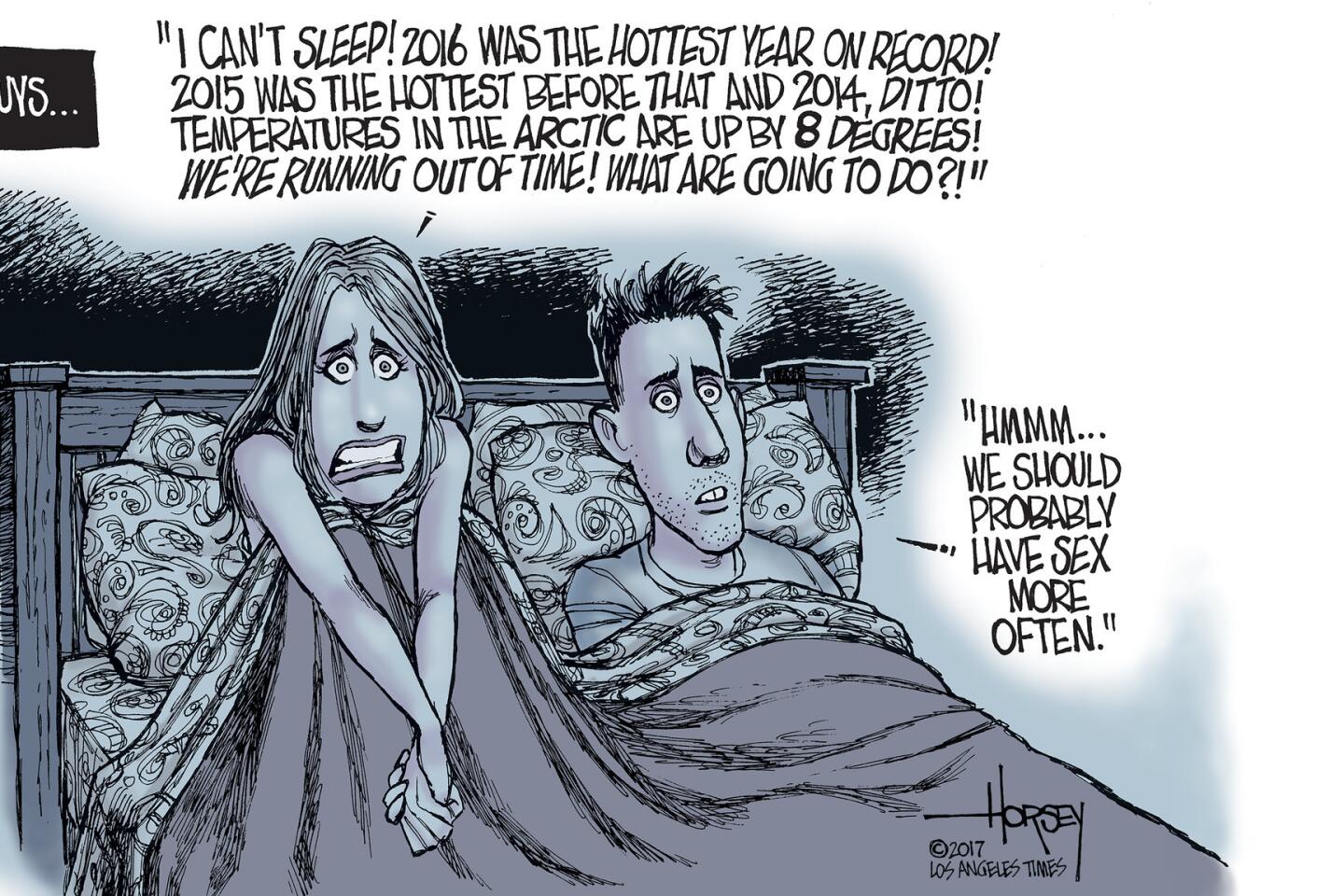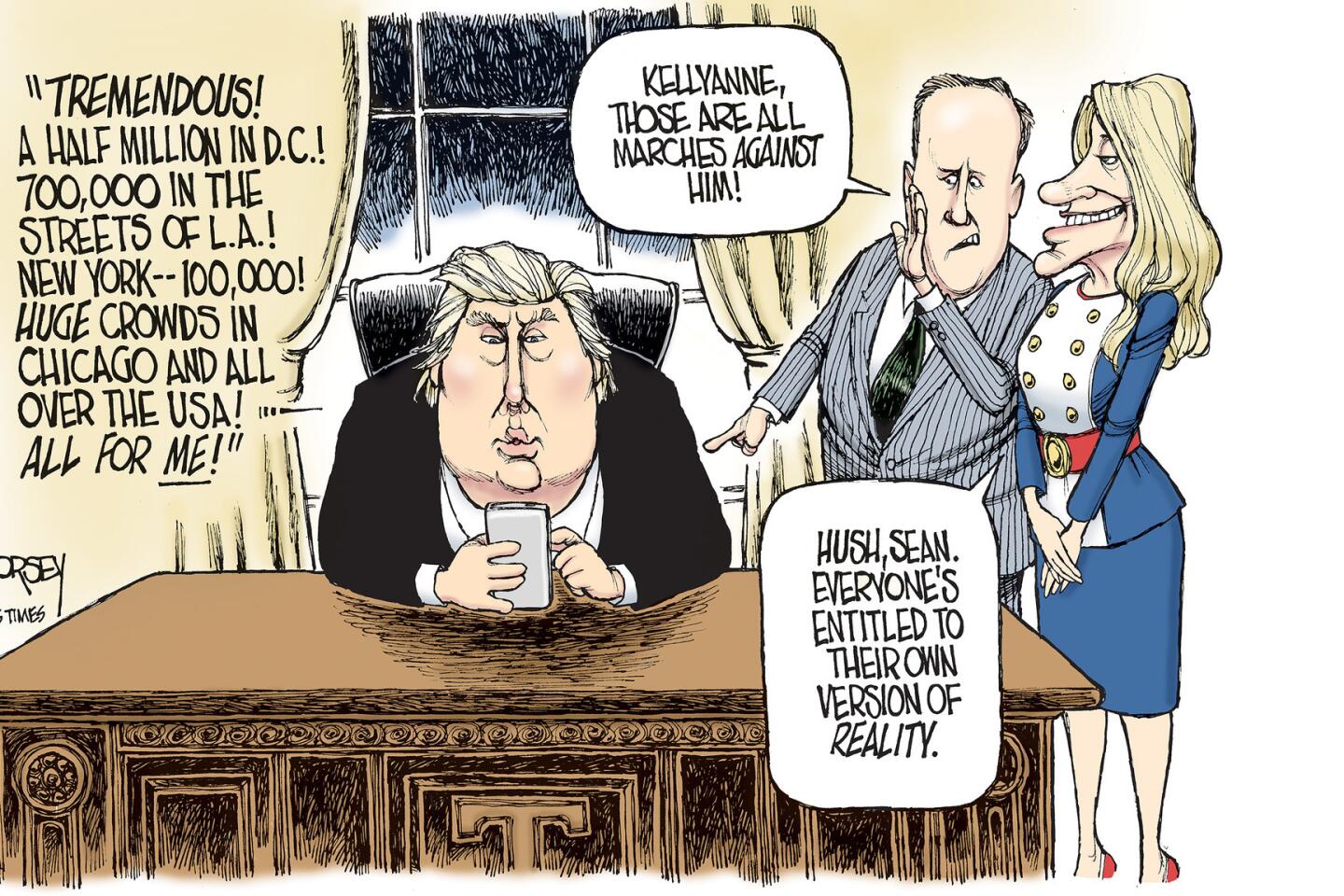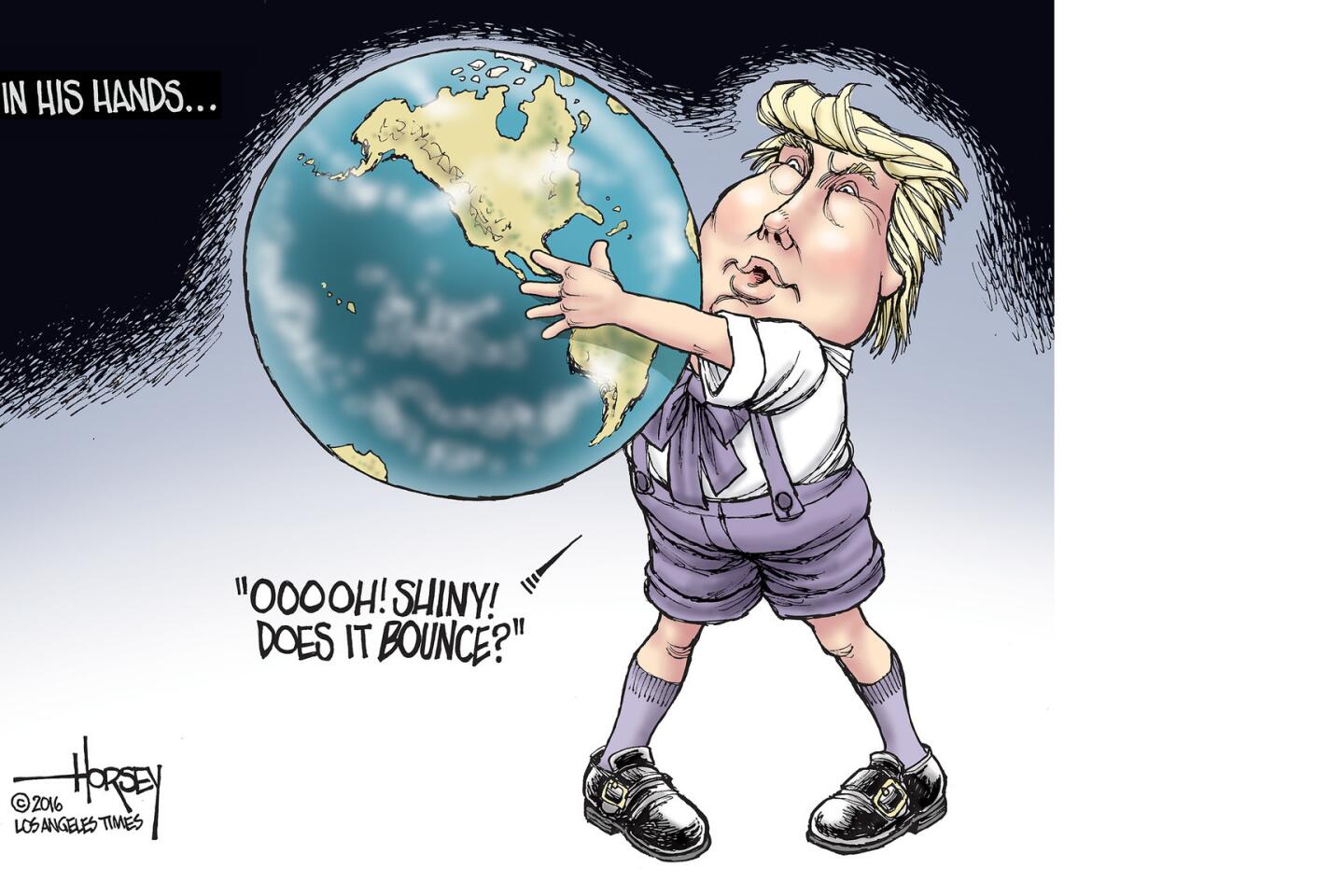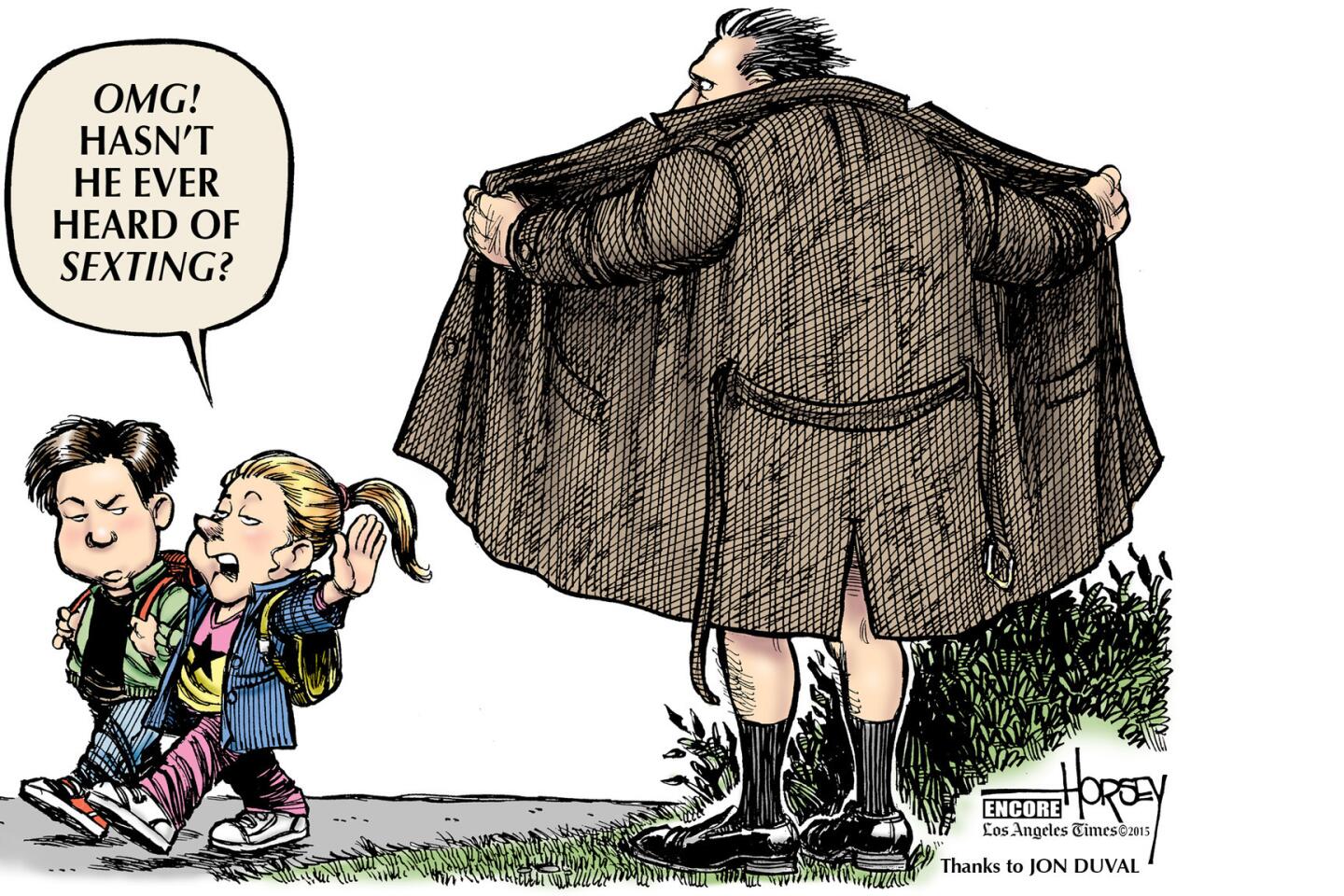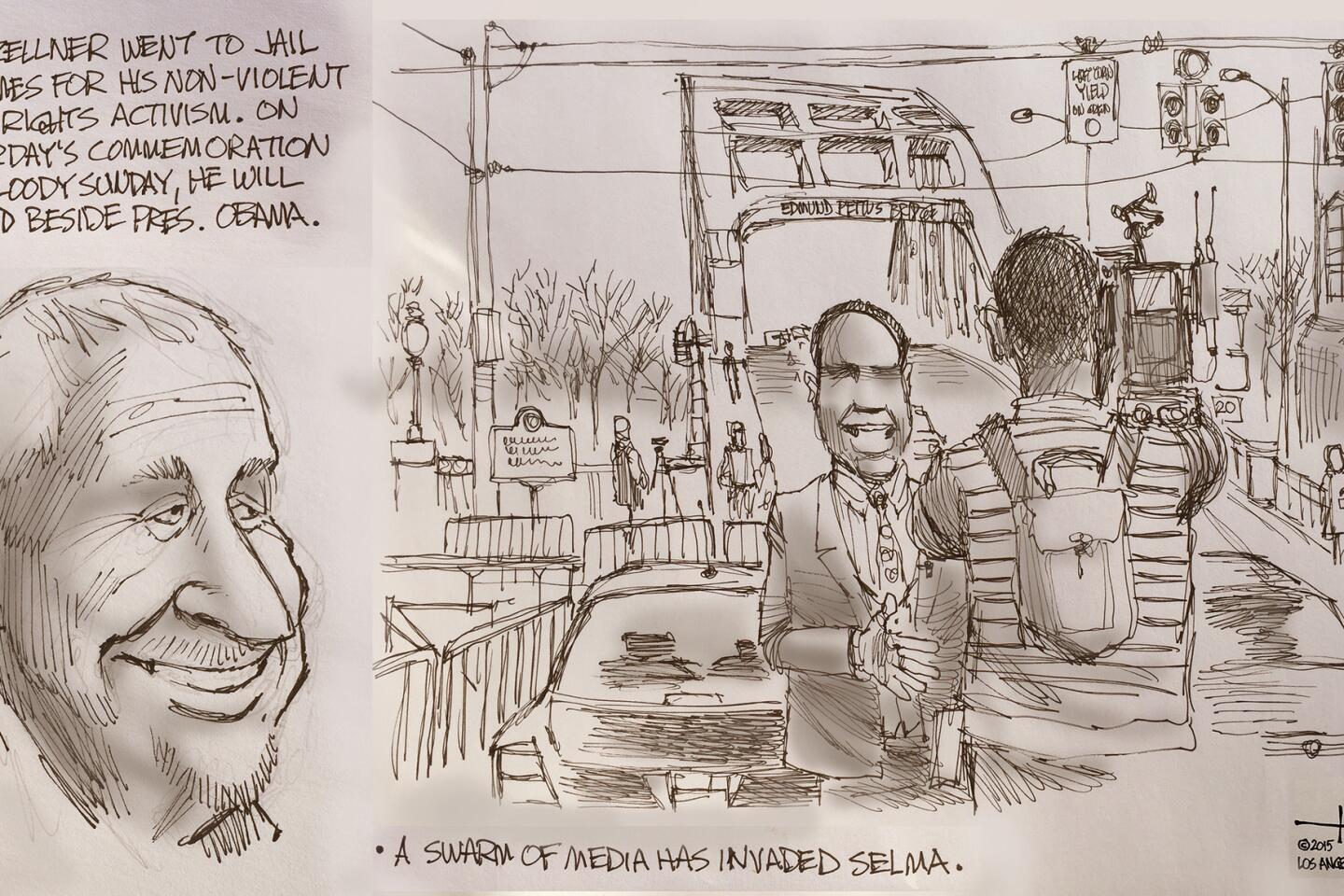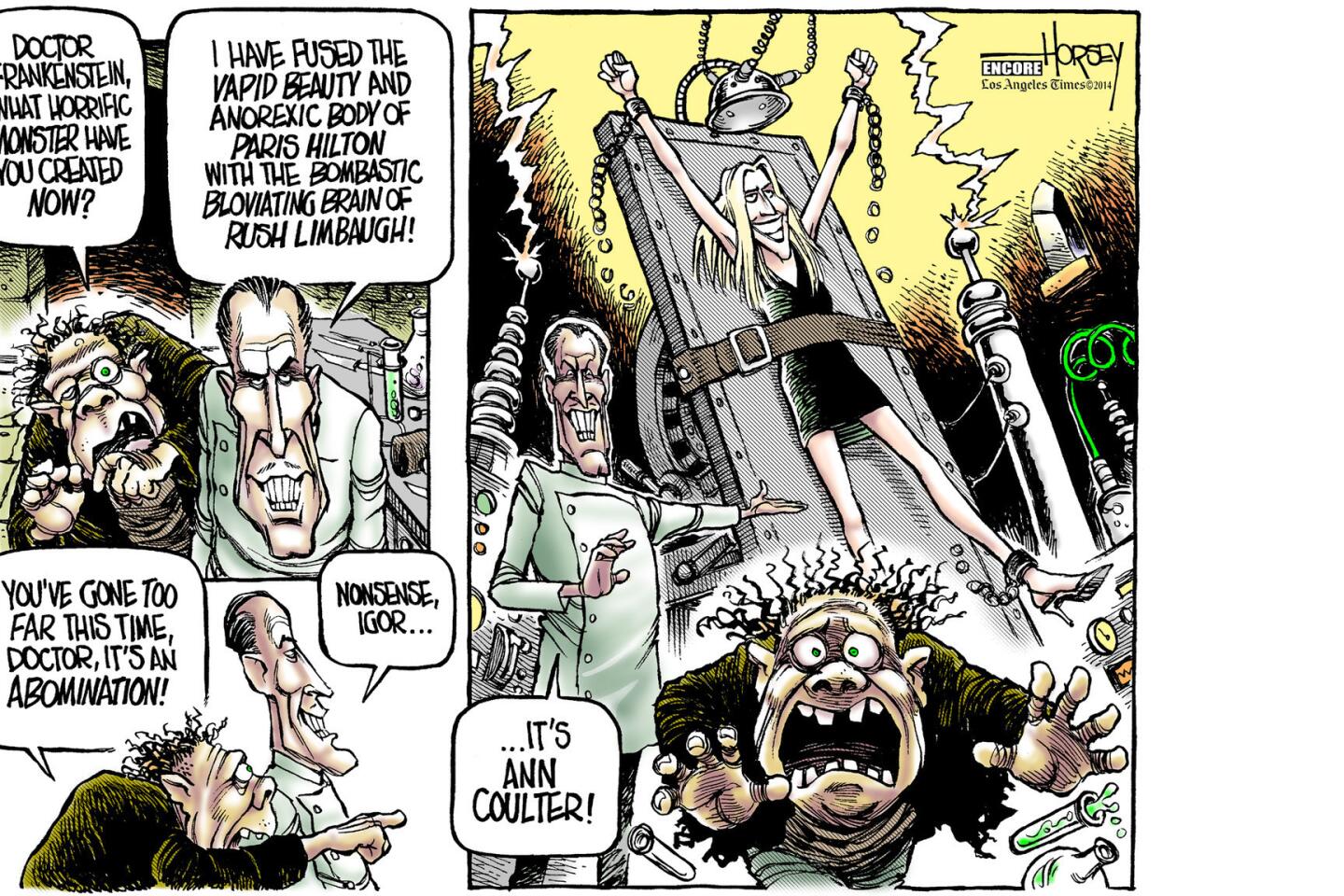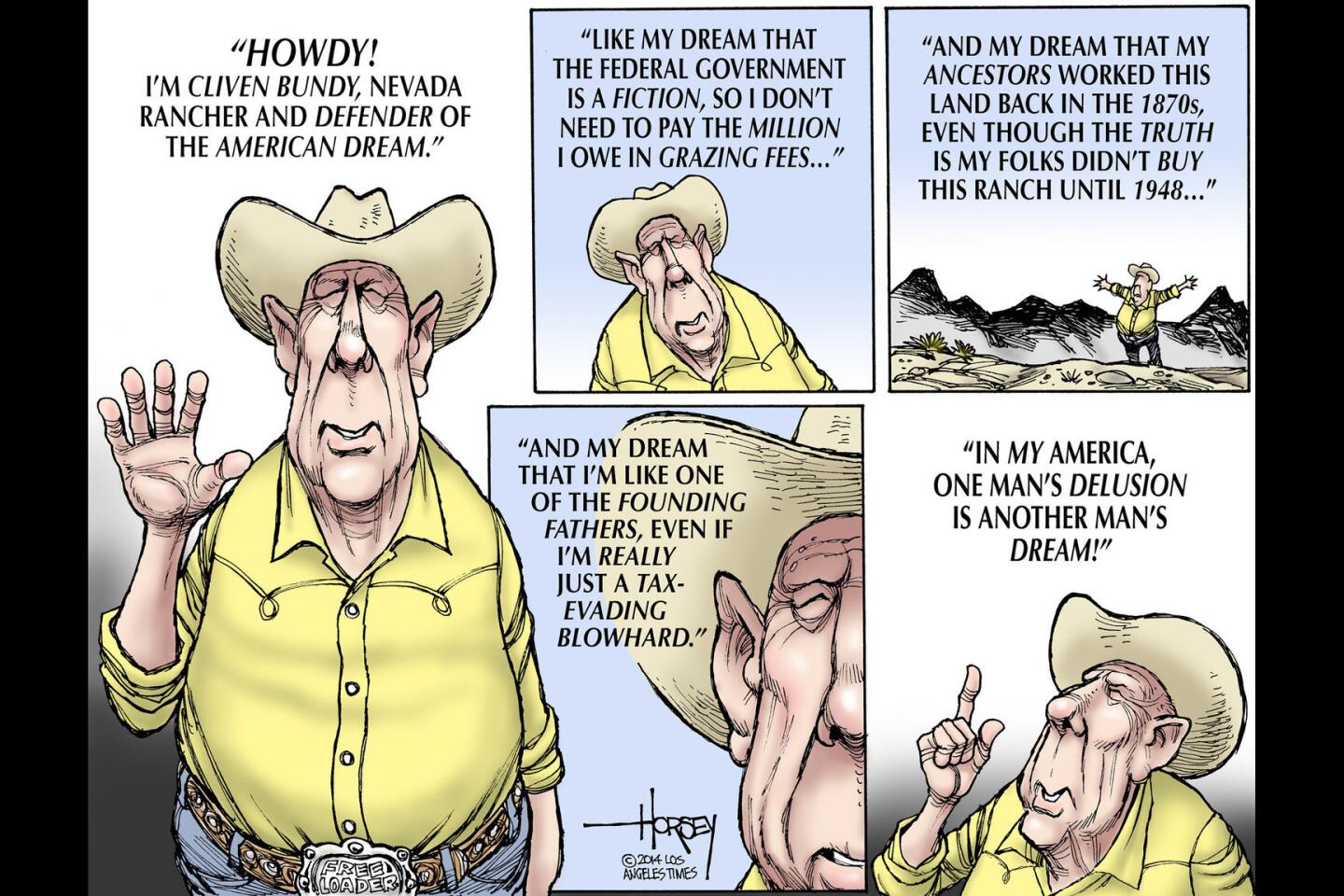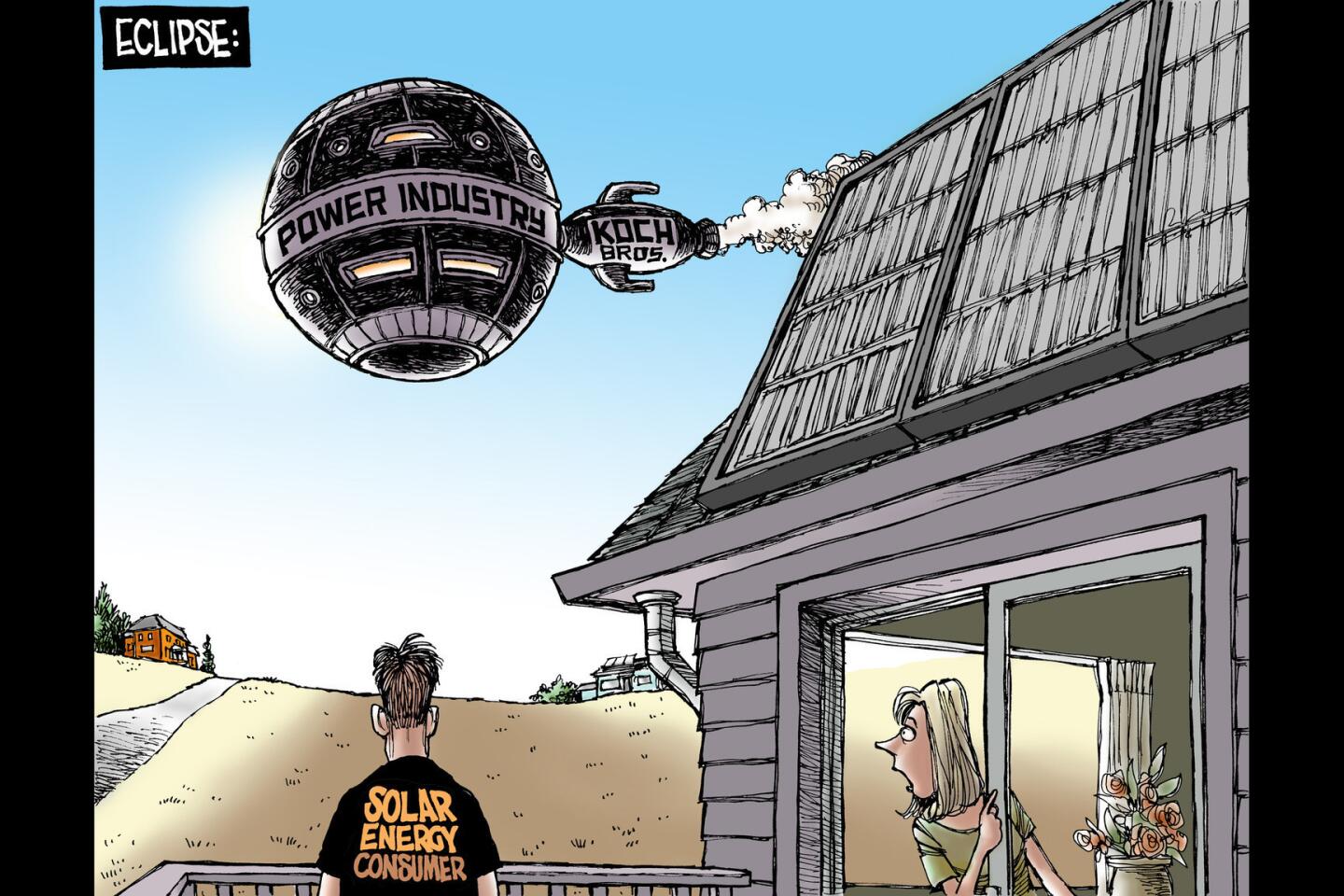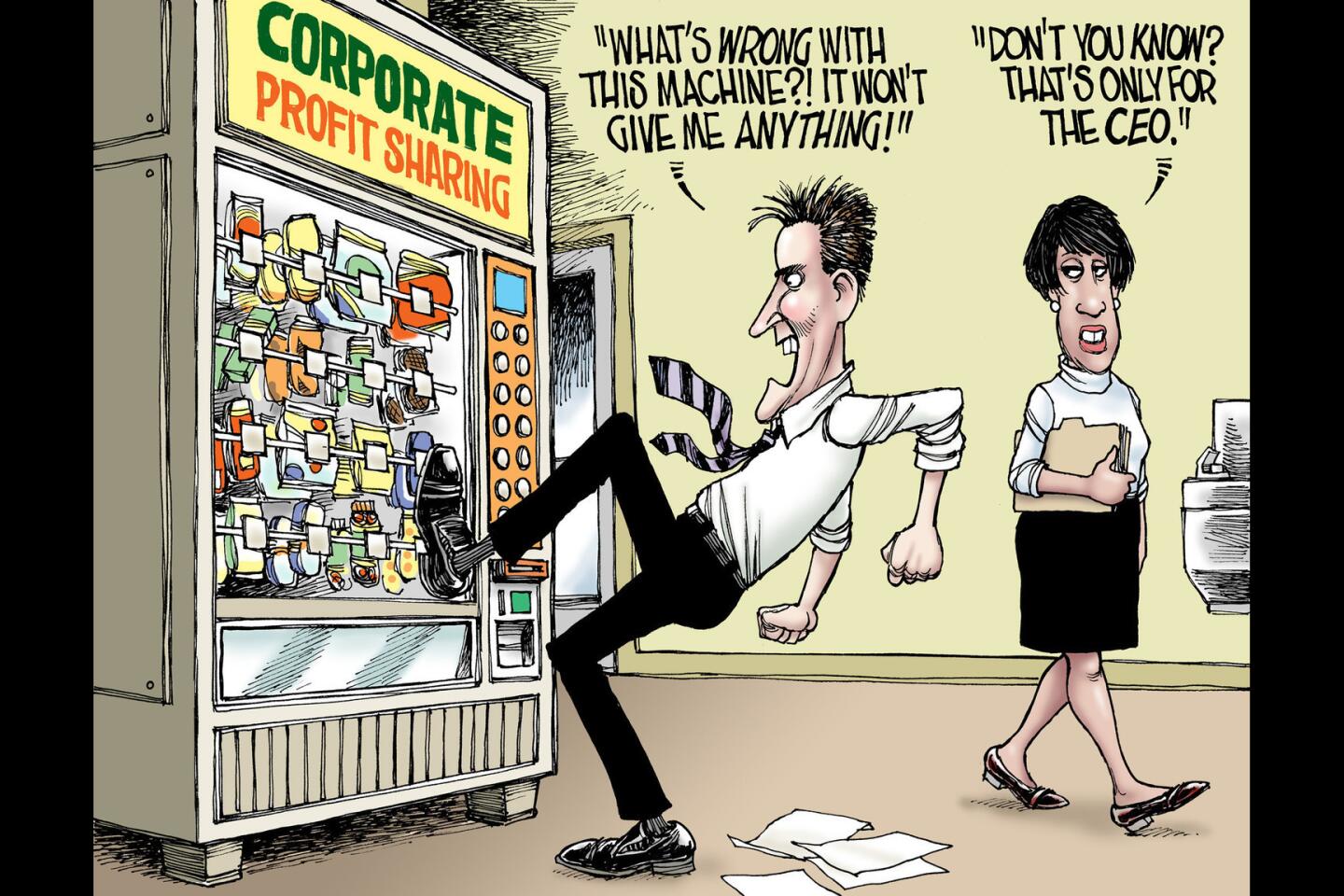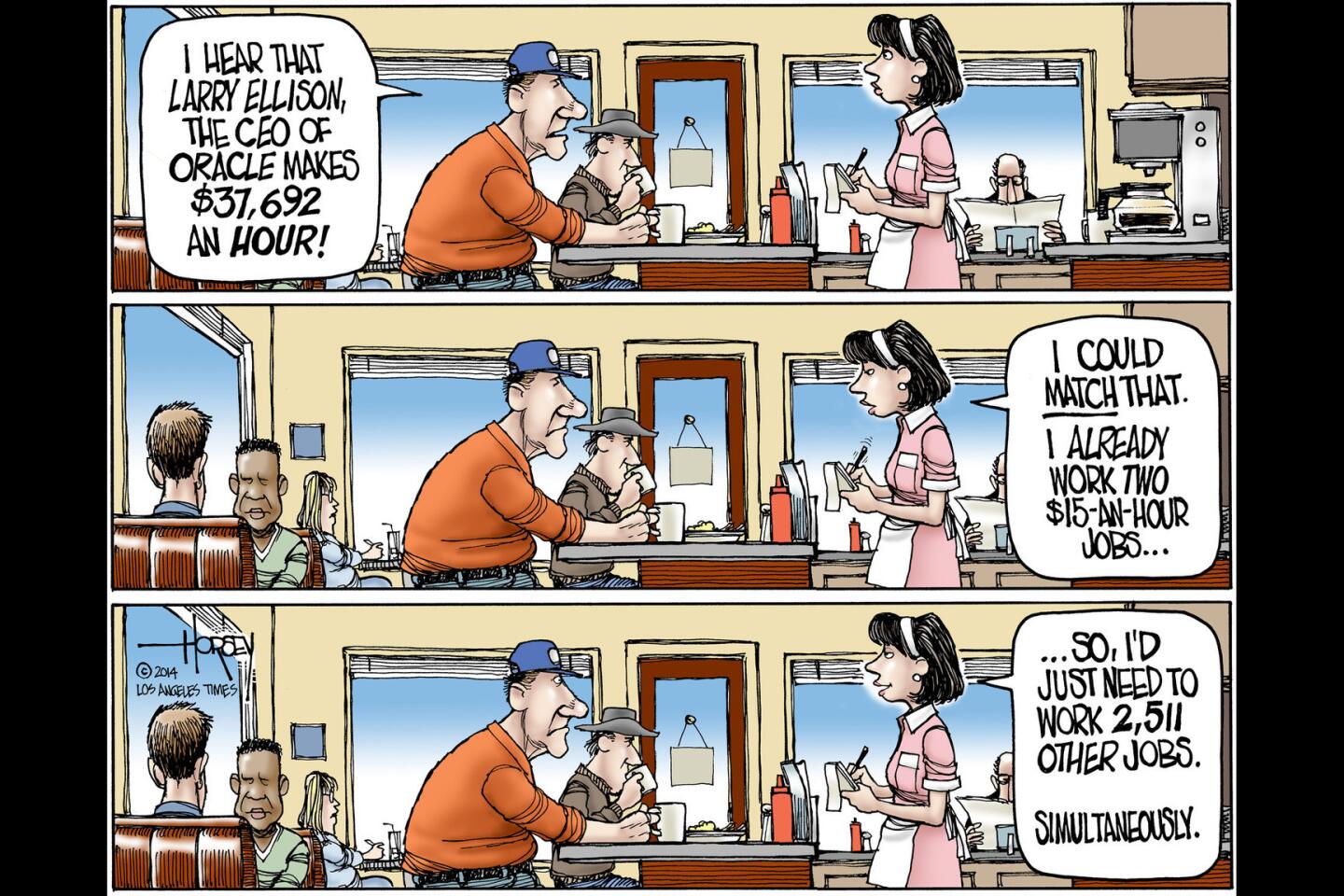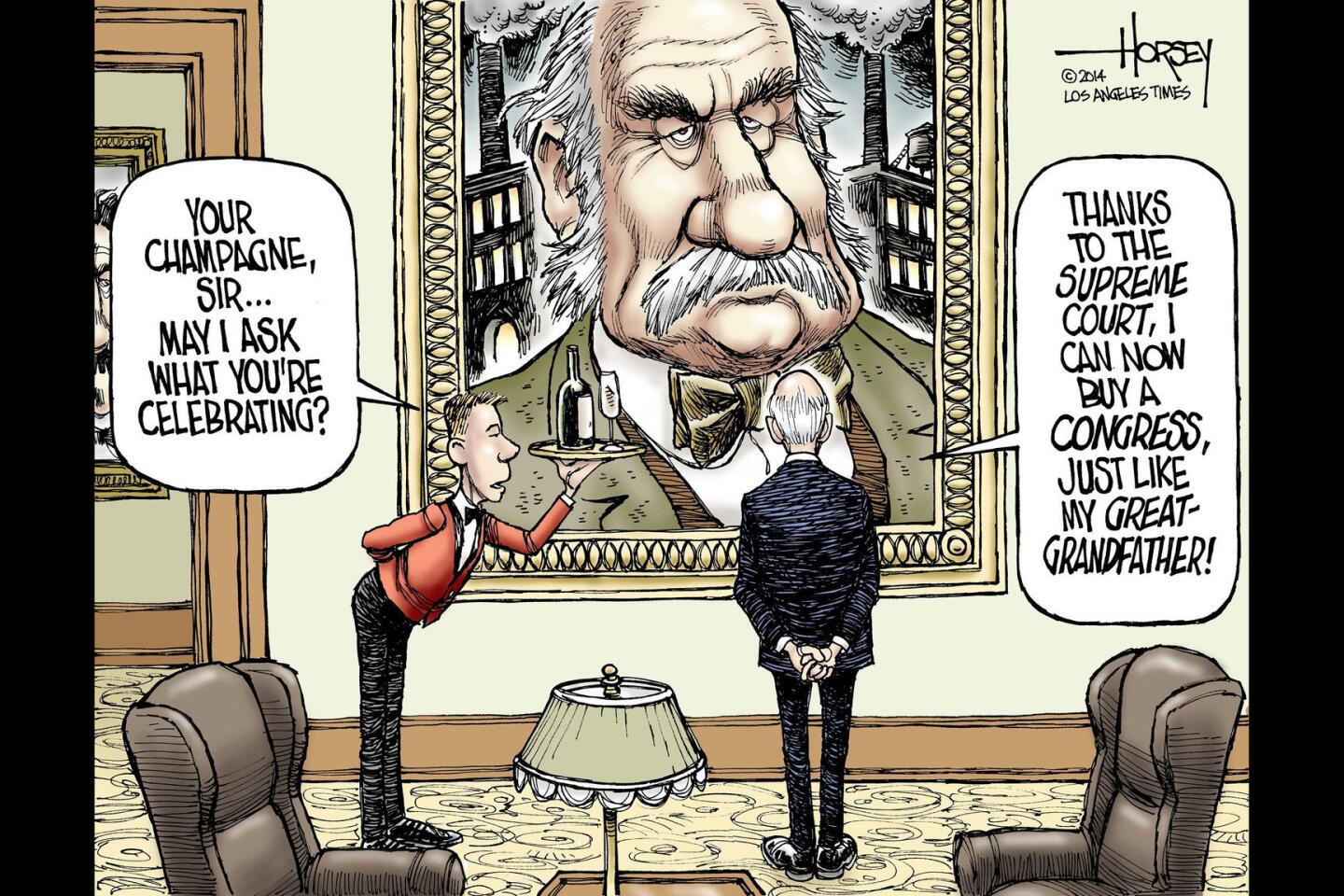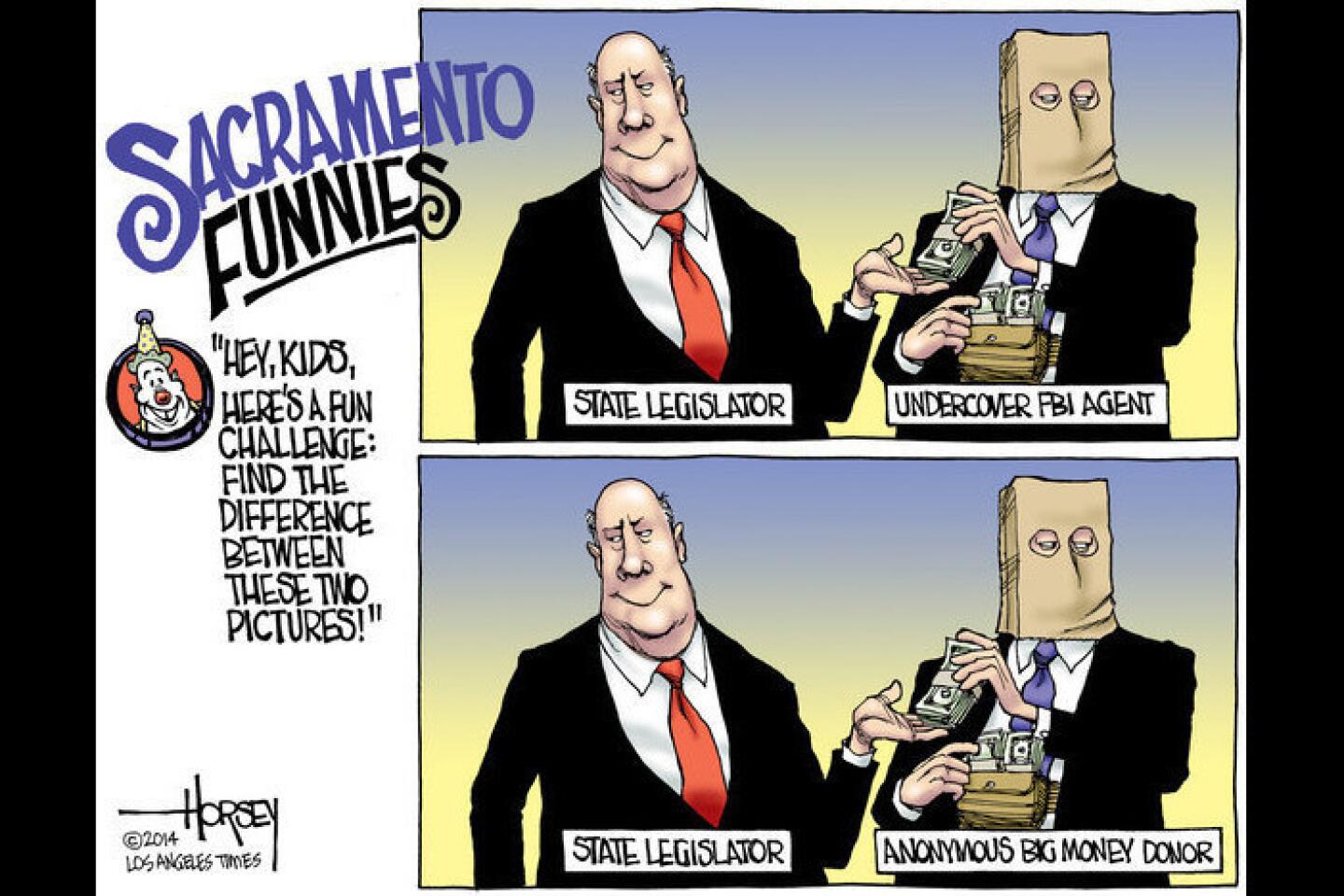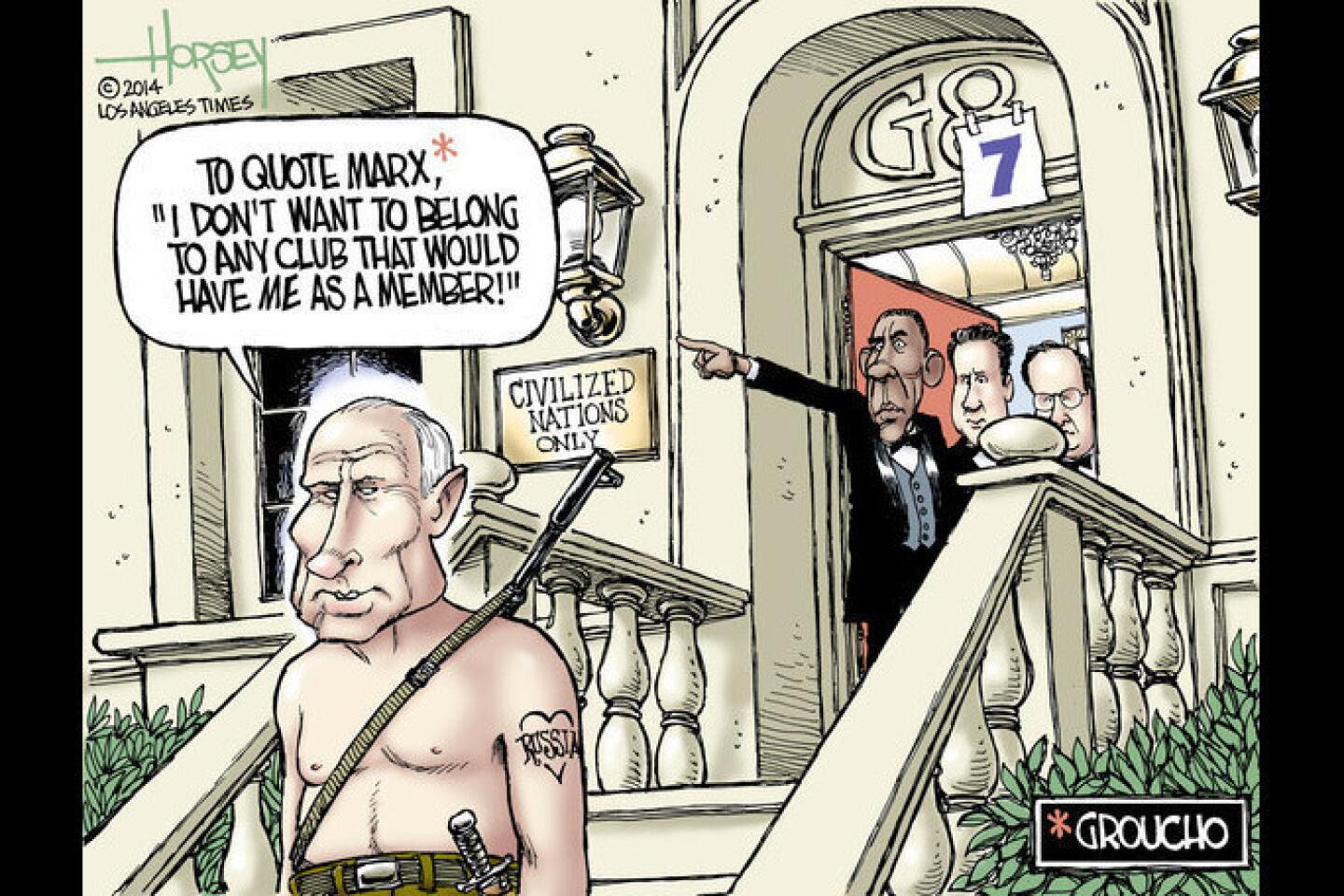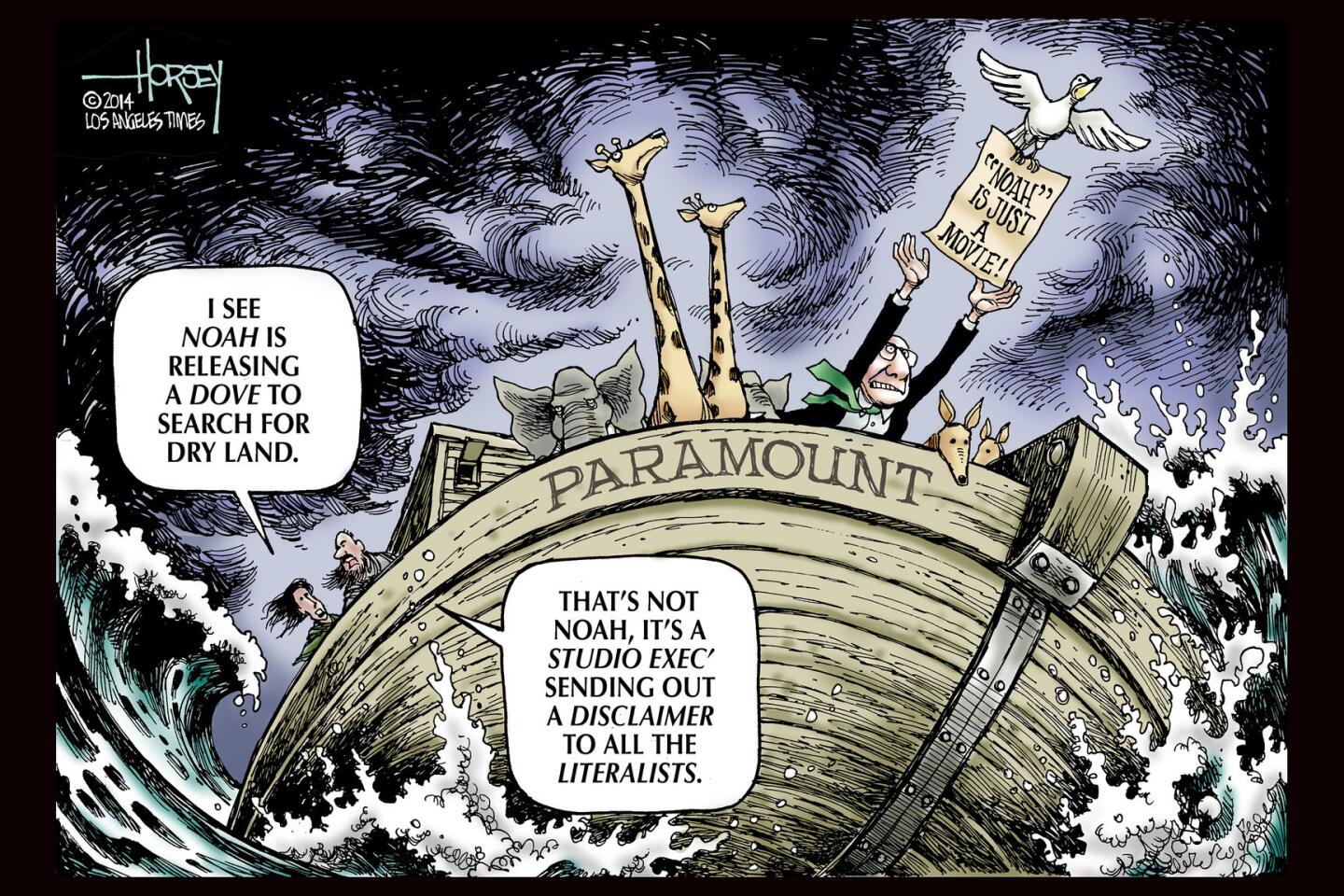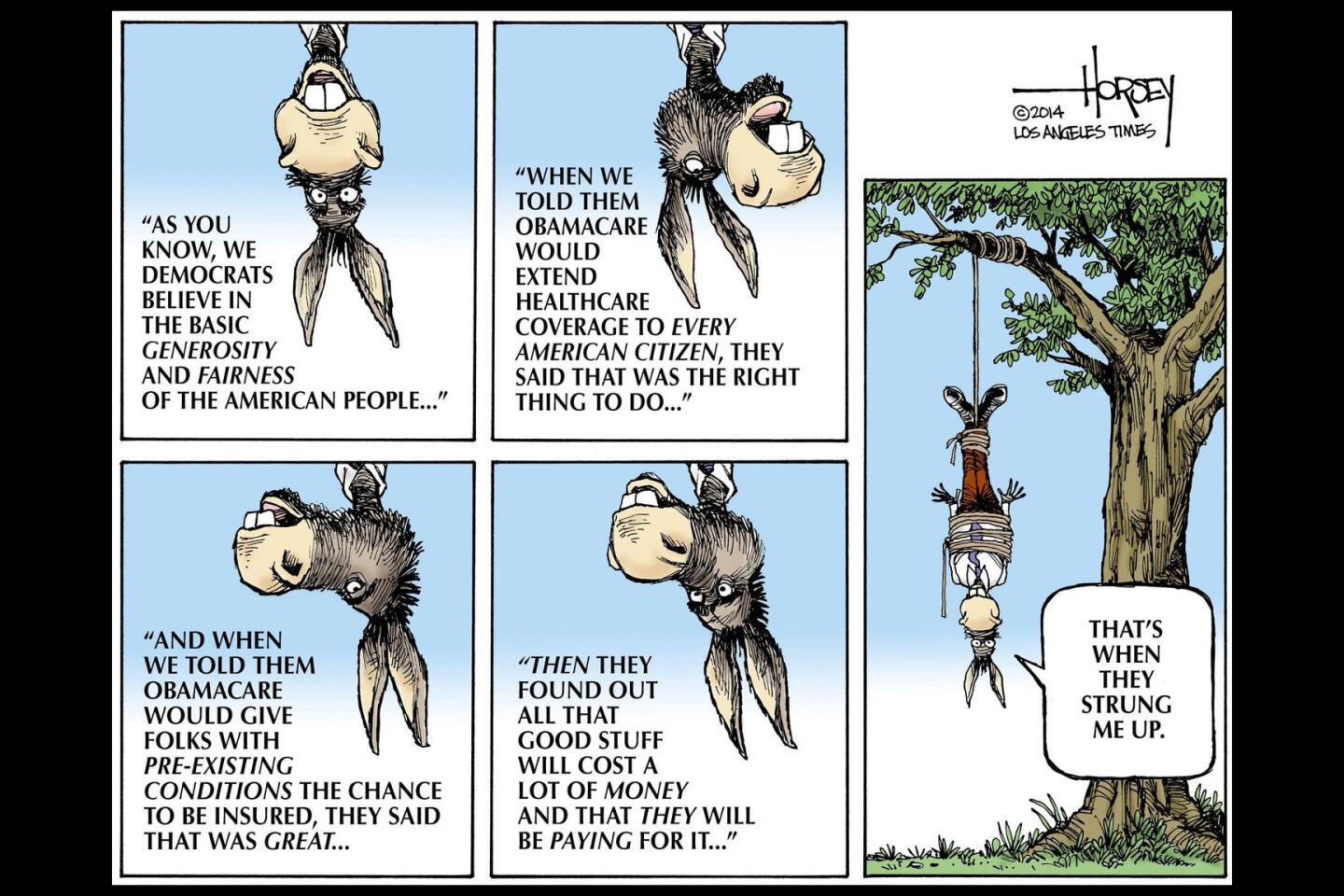Trump offers the kind of simplistic fixes that ‘Brexit’ supporters sought

- Share via
I was on a ferry making passage to Athens from a remote island in the Aegean when I learned that a 52% majority of British voters had chosen to pull their country out of the European Union. It was ironic to get this news in Greece because, just a year ago, the Greeks, not the Brits, seemed the most likely to part ways with their European brethren.
Donald Trump was also in Europe that day. He had flown to Scotland to open a new golf course while his campaign for president listed like a ship without a captain. There was irony in Trump’s locale, as well. He was calling the “Brexit” vote “a great thing,” even though Scots had cast an overwhelming vote in favor of remaining in the EU.
In a news conference near the ninth hole of the Turnberry links, Trump, once again, revealed the profound shallowness of his understanding of global affairs. The man who wants to be leader of the free world rambled on about his golf resort for a quarter of an hour before finally commenting on Brexit. Trump claimed to have conferred with his foreign policy advisors (whoever they are) and, from that alleged discussion, concluded that Brexit is not a big deal (even though many others think it may lead to a dissolution of the United Kingdom, the fracturing of the EU and serious foreign policy problems for the United States).
Trump was closer to the mark when he interpreted the Brexit vote as a manifestation of the same populist, nationalistic, anti-immigrant sentiments that have empowered his American presidential campaign.
“People want to take their country back,” Trump said, echoing the language of many fearful, white, nonurban voters in the U.S.A., as well as that of the many fearful, white, nonurban voters in England and Wales who gave Brexit a majority. “They want to have independence in a sense, and you see it with Europe, all over Europe. … People are angry. All over the world, people, they’re angry. They’re angry over borders. They’re angry over people coming into the country and taking over; nobody even knows who they are. They’re angry about many, many things.”
Trump declared that he would fix America’s problems the way he has renovated the Scottish golf course. When a reporter pointed out that a country is not the same as a golf course, Trump said, “No, it’s not, but you’ll be amazed how similar it is. It’s a place that has to be fixed.”
Interesting logic; if two things need fixing, that makes them very much the same. Well, among the places that need to be fixed is Greece, but whether the fixing would be better accomplished outside the EU, rather than in it, is the heart of an ongoing debate. The Greeks managed their economic affairs so poorly in recent years that they had to be bailed out by the EU and forced into severe austerity measures. Many Greeks would love to escape austerity by jumping off the European ship, just as the Brits have done, and “take their country back.”
I remember traveling through the country they once had. I was a 20-something wearing a backpack, and it was just five years after a ruthless military junta had been overthrown. The countryside felt backward and remote. The capital, Athens, was dusty and chaotic. The airport was tiny. Taxis were jalopies.
On my latest visit, I flew into a big, modern airport. The taxis were mostly spotless Mercedes-Benzs. Highways were in far better repair than stretches of the 5 Freeway running through Burbank or roadways in much of America. Yes, the country is in the throes of a terrible economic crisis, but, obviously, in the years between my earlier visit and this one, there had been good times. And one major factor in bringing about those more prosperous, democratic days in Greece was membership in the EU.
The European Union is not perfect, but the non-democratic regimes and vicious warfare that plagued Europe for centuries were far worse. Organizing the politics and economics of a continent is not a simple task. Right now, many people seem more fixated on the annoyances than the benefits of working together. Voters looking for a quick fix and simple answers are enjoying a surge of influence. They pulled Britain out of the EU and are pushing for a similar exit in France, the Netherlands and Greece.
Meanwhile, in the United States, they have rallied around a man who, day after day, reveals how little he knows about complex things — and they seem to love him for it. The world can seem a happier place if you choose to believe a country and a golf course are more or less the same.
Follow me at @davidhorsey on Twitter
More to Read
A cure for the common opinion
Get thought-provoking perspectives with our weekly newsletter.
You may occasionally receive promotional content from the Los Angeles Times.



